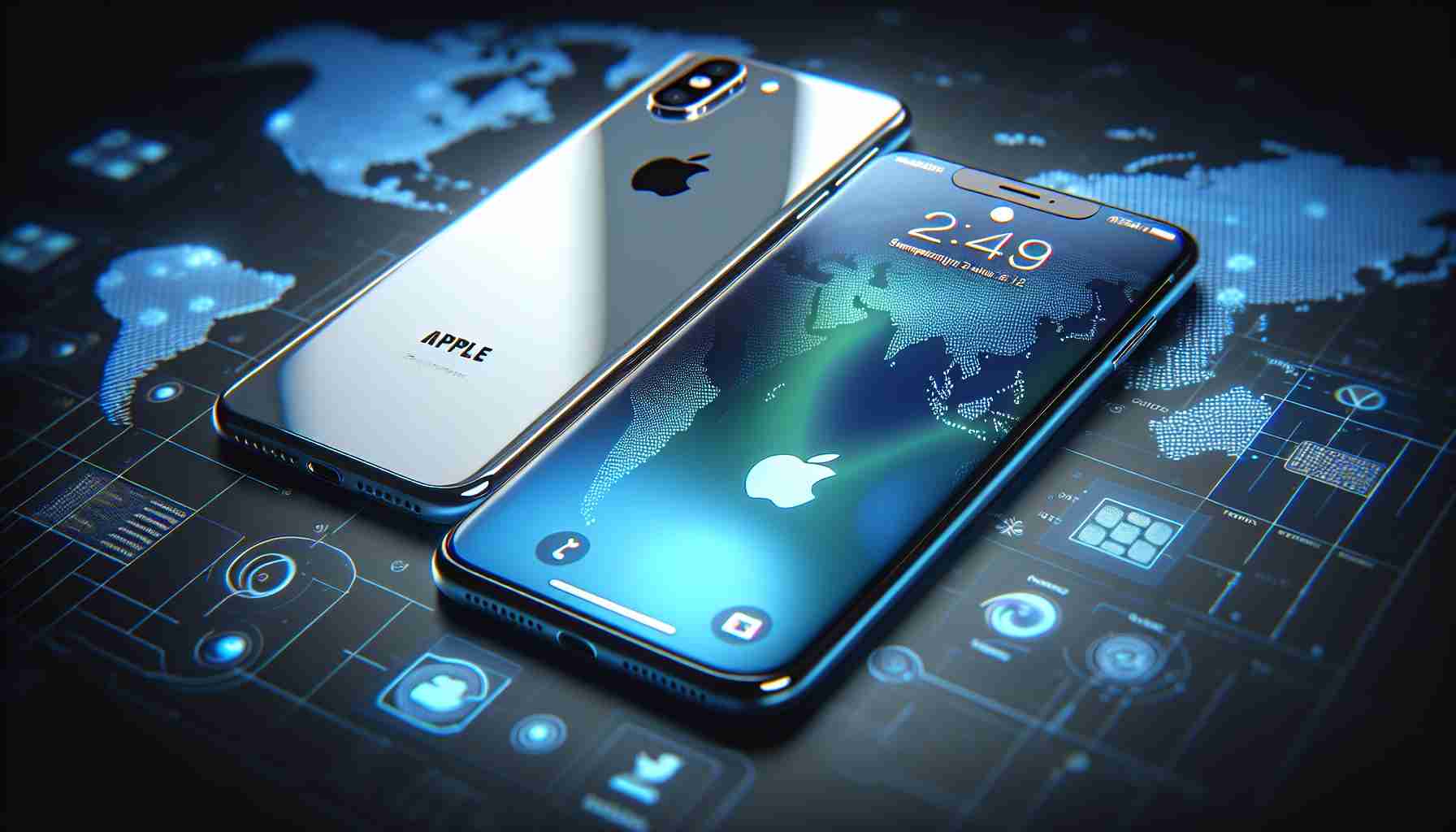Market dominance in the smartphone industry remains a two-horse race between technological behemoths Apple and Samsung. Recent information from Counterpoint Research shines a spotlight on this duopoly, with their devices occupying the entirety of the top ten bestsellers list for Q1 2024.
In a shift in consumer behavior, the allure of premium features has led to pricier Apple Pro models, which now constitute a significant portion of the company’s sales, doubling their presence in comparison to the prior year. This trend extends to Apple’s Max phones, underscoring a growing consumer preference for expansive screens.
The best-selling smartphones globally have been detailed by Counterpoint, showcasing a stronghold by Apple, particularly with its flagship iPhone 15 Pro Max, and Samsung’s innovative Galaxy S24 Ultra, among others. These leading models, which captured the lion’s share of the market, are as follows:
- iPhone 15 Pro Max: 4.4%
- iPhone 15: 4.3%
- iPhone 15 Pro: 3.7%
- iPhone 14: 1.9%
- Galaxy S24 Ultra: 1.9%
Samsung’s recent success is partly owed to its pioneering GenAI technology, offering users groundbreaking content creation and interaction capabilities. This propelled their S24 series to an early success.
The trend towards more sophisticated devices has affected sales dynamics; people are lengthening their upgrade cycles, leading to fewer yearly transactions for producers, even as device costs escalate. Notwithstanding this, the first quarter of the year broke records in smartphone revenue, which grew by 6%, amounting to nearly 300 million shipped units.
While high-end models reign supreme, there’s still a thriving demand for economically priced smartphones, as evidenced by the prominence of Samsung’s Galaxy A34, A54, and A15 5G. To counterbalance the plateauing unit sales, Apple is increasingly turning its focus to augmenting its services revenue, surpassing expectations in its recent financial summaries.
Challenges and Controversies:
The smartphone industry faces several challenges, including market saturation, innovation stagnation, and environmental concerns. Apple and Samsung, while enjoying a significant market share, are often scrutinized for their strategies, which can lead to controversies:
– Market Saturation: With high smartphone penetration in developed markets, there is a challenge in maintaining growth, leading companies to find new markets or create more compelling upgrade reasons.
– Innovation Stagnation: Critics argue that the lack of groundbreaking features in new models may hinder future sales, as consumers are less inclined to upgrade for incremental improvements.
– Environmental Impact: The production and disposal of smartphones have significant environmental impacts, raising concerns about sustainability practices of these companies.
– Repairability and Right to Repair: There is an ongoing debate about the repairability of devices produced by Apple and Samsung, with movements urging for the right to repair, which these companies have traditionally resisted but are slowly beginning to address.
– Privacy and Security: Both Apple and Samsung navigate the complex issue of user privacy and data security, a concern that has regulatory and consumer trust implications.
Advantages:
The market dominance of Apple and Samsung comes from their ability to provide a range of advantages:
– Brand Loyalty: Both companies have strong brand loyalties, which encourage repeat purchases.
– Wide Distribution Networks: Their ability to distribute on a global scale allows them to reach a vast audience.
– Innovative Features: Leading innovations such as Apple’s ecosystem integration and Samsung’s foldable screen technology set them apart.
– High Quality: A consistent focus on quality and performance cements their position as leaders in the premium smartphone segment.
Disadvantages:
However, their dominance also poses several disadvantages:
– High Prices: Premium smartphones come with high price tags, making them inaccessible to some consumers.
– Competition Compliance: Dominant market positions draw scrutiny from antitrust regulators concerned with competitive practices.
– Dependence on Flagship Sales: Reliance on flagship models exposes them to risk if those models fail to attract consumers.
For further information about the smartphone industry and the broader context of Apple and Samsung’s place within it, these links to the main domains might be useful:
– Apple
– Samsung
– Counterpoint Research
Please note that, as with all topics, it’s important for consumers and industry analysts to stay up-to-date with the latest developments to understand the ongoing impacts of these global market trends.
The source of the article is from the blog dk1250.com
